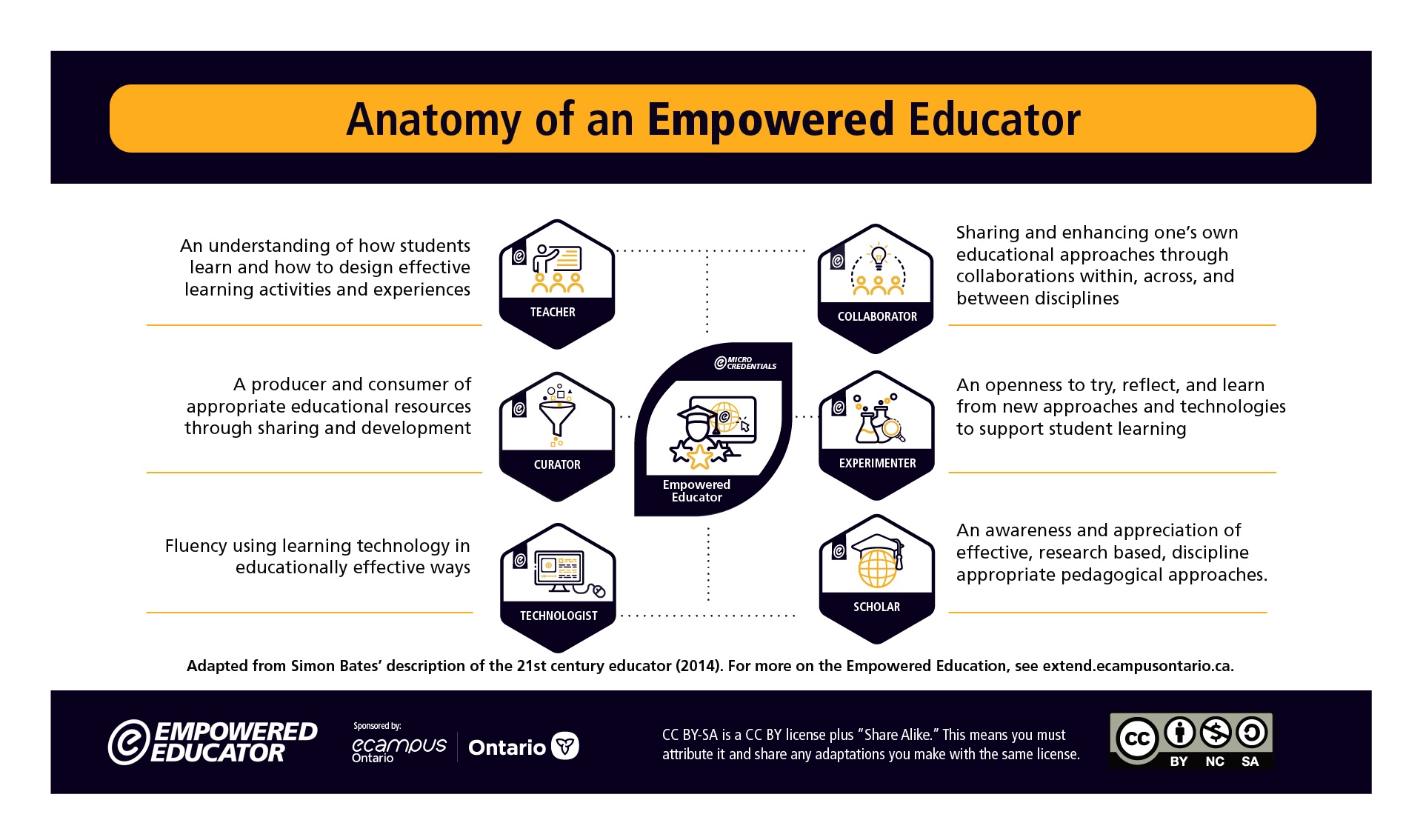Modules
Modules
Online teaching supported by technology requires knowledge and skills to create content, acquire resources, facilitate learning experiences, and design effective online assessments. As a fundamental step to develop skills in these areas, educators must:
- Understand and analyze research findings on how people learn;
- Be able to create, develop, use, and share appropriate educational resources;
- Discern the possibilities and limitations of technology to support teaching and learning;
- Build professional learning networks through collaborations with other disciplines;
- Use a scholarly approach to teaching;
- Demonstrate a willingness to experiment, that is, to try, reflect, and learn from new approaches, pedagogies, and technologies to support learning (Bates, 2014).
These topics are covered in six modules of the Empowered Educator program, whose framework is based on Simon Bates’ (2016) model for the Anatomy of the 21st Century Educator. The program encompasses the knowledge, skills, and attitudes identified as the foundational skills required to “thrive (and not just survive) in a digital world” (Coldwell-Nelson, 2018; Martin & Grudziecki, 2006). The Empowered Educator framework is highlighted below.
Each module takes an average of 4 to 6 hours to complete and is designed to be self-paced. You can complete the modules asynchronously on your own and you can also participate in the facilitated sessions offered each semester. The schedule of sessions is available on the homepage or here.
The Empowered Educator program is available on Brightspace. Reminders and other important information will be announced in the Brightspace learning environment. We encourage you to explore the content, consider the resources, experience the activities, and reflect on your practice.
Completing the modules will equip you with the ability to;
- Design effective learning activities and experiences that are grounded in research-based principles of learning that promote students using their knowledge in meaningful ways.
- Demonstrate your ability to select, use, and integrate technologies in ways that support, facilitate, and enhance learning experiences.
- Create engaging, interactive, and open course materials while considering copyright and Creative Commons resources. Explore strategies to search, find, and evaluate open educational resources (OER).
- Experiment with online collaborative tools and develop ways to extend professional and personal learning networks (PLNs) through interdisciplinary collaborations.
- Engage in a series of activities demonstrating curiosity and creativity to design new technology-supported online learning experiences.
- Research how to improve your teaching practice by using your classroom and course as a research lab to positively affect student outcomes and satisfaction in their learning experience.
Your feedback is important to us. Let us know if these modules have been useful to you or suggest ways to improve our resources by sending an email to Empowered Educator.


